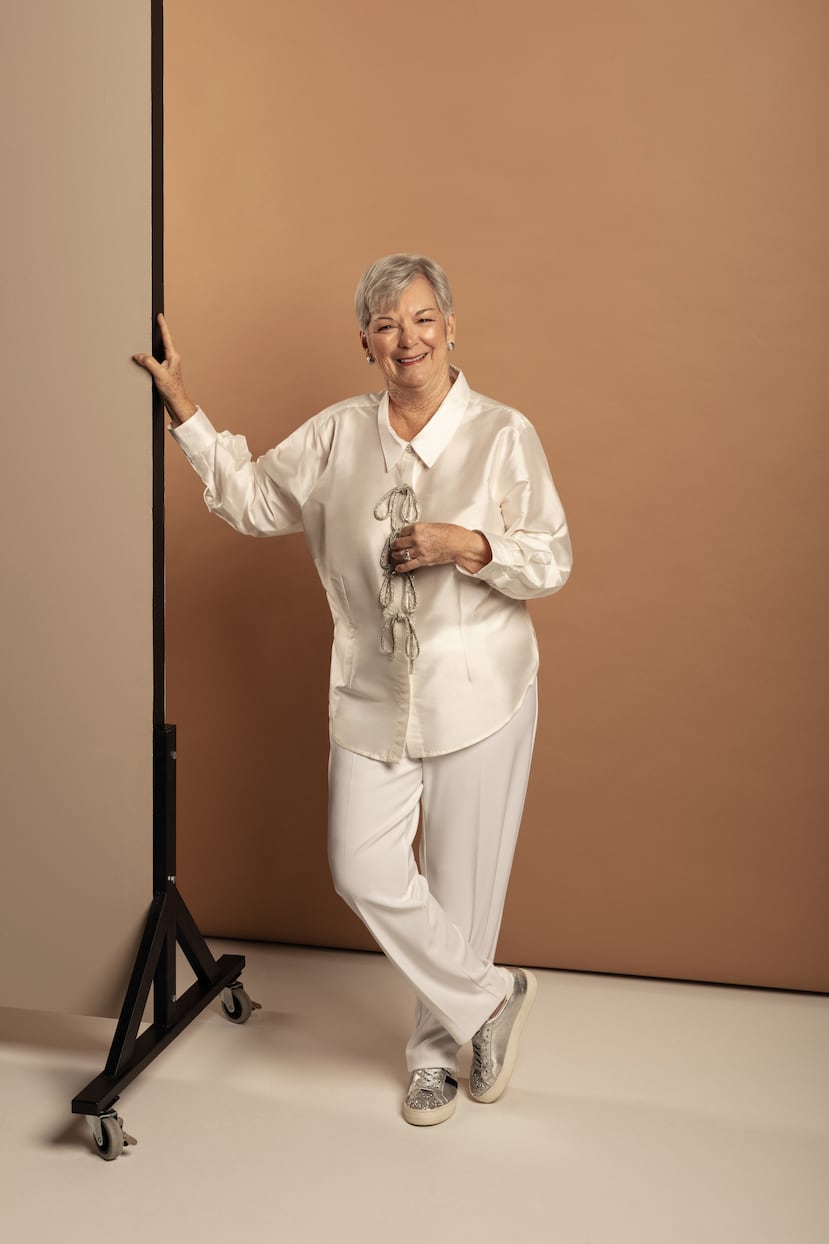As a pioneer in gastroenterology in Puerto Rico, Dr. Esther A. Torres assures that she still has many projects to do. At 75, she has plenty of energy and an impetuous hunger to go after what she believes, dreams and has worked for throughout her prolific life.
---
Lee este artículo en español.
---
Her commitment to transforming lives has been unwavering, with leadership being one of her greatest virtues. Although her commendable feat speaks for itself, she is still surprised by the recognitions and humbly embraces them in gratitude, as was one of the most recent, having been highlighted during Hispanic Heritage Month, celebrated in September, by the American College of Gastroenterology to highlight her trajectory and her impact in leaving a profound mark in the treatment of inflammatory bowel diseases (IBD) both in Puerto Rico and internationally.
“It was an unexpected and a very cool surprise, because I was recognized along with two prestigious colleagues in the United States. The awards surprise me and I am incredibly grateful for them, because they validate all these goals that I have been setting for myself and what has been my mission, which has been effective and has not only reached people within medicine, but also populations, because there are some things that have an impact on the entire community. It’s like ‘Wow,’ but I want to continue, there is still work to be done, to continue opening roads and doing things,” said the professor emeritus at the School of Medicine of the Medical Sciences Campus, where she directs the Center for Inflammatory Bowel Diseases and the Gastroenterology Research Unit.
Her performance and contribution to the healthcare industry this year, as medical director of LifeLink of Puerto Rico, also led her to be chosen as one of the Outstanding Women in Health 2024, awarded by the Puerto Rico Hospital Association, in the Community Impact category.
More than a profession, what moves Dr. Torres is her vocation and passion, which leads her to develop within a complete field, which includes caring for patients, educating new health professionals, mentoring, working for the community, innovating and being a clinical researcher for many years, among other roles, which not only fill her with great satisfaction, but have earned her the respect and admiration of many.
“I have dedicated my whole life to medical education, since graduating from my specialty. It is very gratifying because you see how they grow, how they become successful health professionals, or when they were residents, you mentored them and modeled for them, and then you see them reach leadership positions; that is extremely satisfying. Seeing them get there is the reward. The same feeling happens when I see the results of research by fostering interdisciplinary research, which is essential today, but is a relatively recent concept, where modeling and teamwork prevails, which is how life should be done. All those things are my daily life, which gives me a lot of satisfaction and a lot of energy,” said the mentor of hundreds of students and residents and 20 research fellows.
The also president and founder of the Esther A. Torres Foundation for Inflammatory Bowel Diseases (FEAT) for 13 years, adds another professional achievement when in the past weeks she was invited to be part of the creation of a worldwide registry about inflammatory bowel diseases.

“This is a large research project that I have been carrying out in Medical Sciences since 1995. Although Puerto Rico is tiny and we are not on the radars of the rest of the world, we get the information that is important to us. So, being invited, representing my institution, the University of Puerto Rico (UPR), and the record we keep there, to be part of this global initiative, was another thing that surprised me. After the shock and stress of thinking about something as big as that, I affirmed, thanked and communicated that it is an honor and I am delighted that this little island is part of the world. This has a big impact because it puts the statistics and the description of these diseases at the level of different countries in the world, in a single data resource,” she explained.
Stimulus in her career
Her career has not been without challenges, with her biggest challenge being within academia outside of Puerto Rico, when she had to meet with the male-dominated group of internal medicine department heads at U.S. medical schools.
“The biggest challenge, and this is a personal interpretation, has been being in a position where there are very few women and feeling that not everyone values your presence and your opinion equally to the entire group. When I started, I was the first female department head at the UPR School of Medicine, and every school is part of that group of heads. At that time there were 125 medical schools, that is, 125 members, and of those only three of us were women. It was intimidating and it wasn’t easy, but you work at it and the key to work at it is to demonstrate that ‘I can do this as well as you or better,’” she shared.
“The difficult we do today. The impossible we do tomorrow ”
However, Dr. Torres is pleased that today there is a plethora of women in all disciplines at the School of Medicine, who have also risen to leadership positions at the national level. An open-door culture has characterized her, for anyone who needs her, to help ease their way and give them a boost that encourages them, with a simple: ‘you can do it,’ just as they did for her.
“It is very satisfying for me, because they did it with me, but they did it with men, because there were no women at that time. All my life I have been grateful for the mentors I had, men who treated me and told me: ‘you can do it’ and ‘you are the best’, and they made me believe that everything could be done and could be done. So having the advantage of having a woman who has done that, who can be your mentor, your ally, your advisor, your friend, makes it even easier,” she said.
Invaluable legacy
In her eagerness to continue innovating, she points out that there is much to be done in the field of research, as well as in her work in the community, which impacts patients with Crohn’s disease or ulcerative colitis, who still have difficulty accessing medical services, reasonable accommodations at work and school, and costly medications. Therefore, she reiterates that she remains steadfast in her work to continue educating and raising awareness, so that eventually public policy can be made to achieve equal treatment with those suffering from other medical conditions, as part of the legacy she wishes to leave behind.
“We are developing new projects, which are important for Puerto Rico, and I would like to have a few more years to see them reach their goal and be able to leave them to someone who will follow them, because some of them are projects that don’t end. The second thing is that, from the point of view of my work in the community, which is important for the population of patients with inflammatory bowel diseases, there is still a lot of ground to cover. There is no awareness in the general public or at the public policy level of these conditions, which have no cure and are life-changing, in some cases can be disabling,” she said.
She also emphasized that one of the projects she would like to achieve is to put into effect an identification card for patients, which is given to them by the gastroenterologist, based on the ADA law, which would allow quick access to the bathroom for these patients.
“There is no law in Puerto Rico for this and we wish there was because there are states where there is. That the patient who suffers from such a condition has an identification for quick access to the bathroom. The idea is that if you are, for example, in a small business where the bathrooms are only for employees and there you have an emergency, you do not have to go to the other end of the large place to look for bathrooms. We have been trying to carry this message for a long time and I dream that someday, before I retire from everything, we will make it a law in Puerto Rico, but we have to start all over again because a bill was drafted, but nothing ever happened. Now with a new Legislature, we are starting from scratch again,” she added.
---
This content was translated from Spanish to English using artificial intelligence and was reviewed by an editor before being published.


